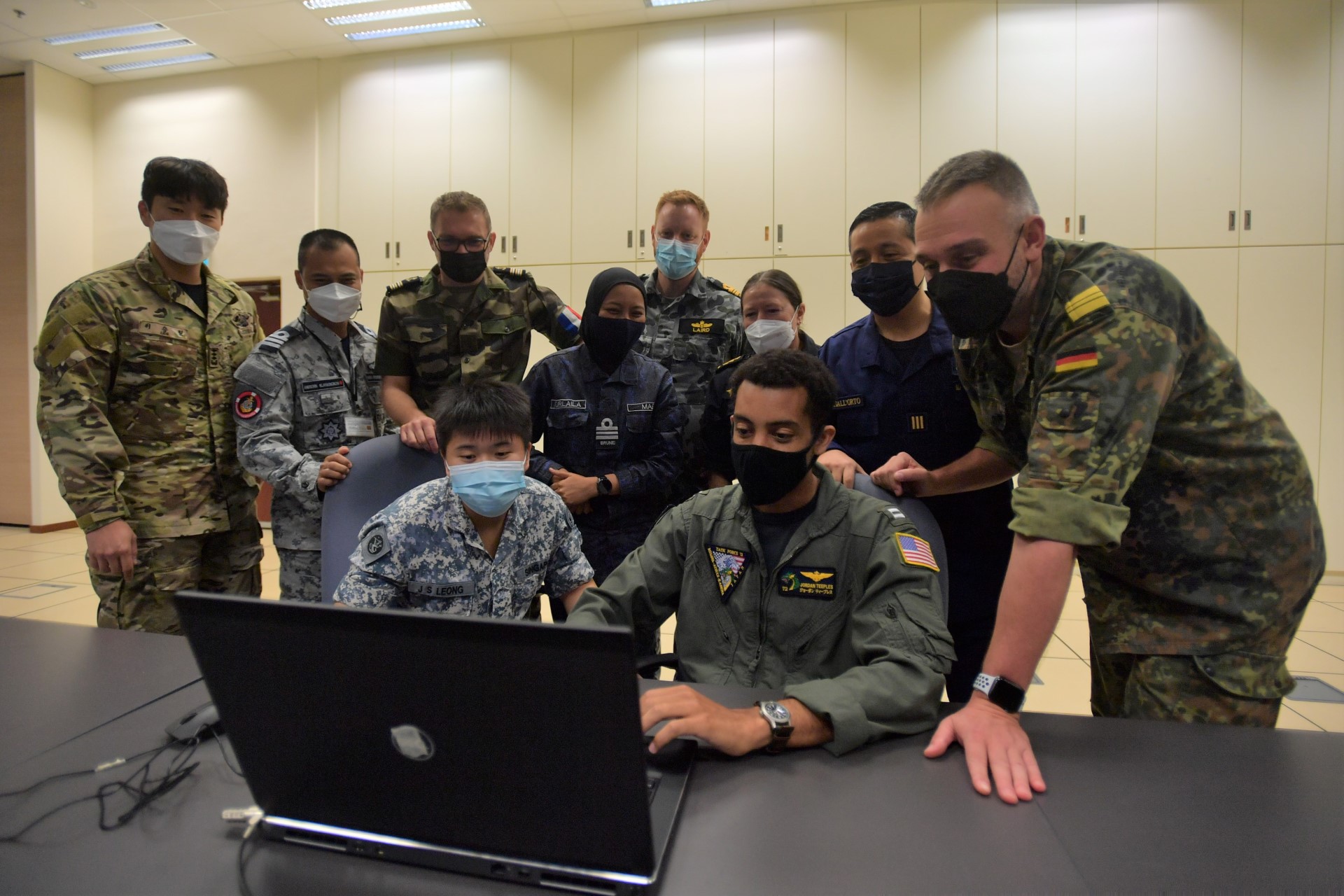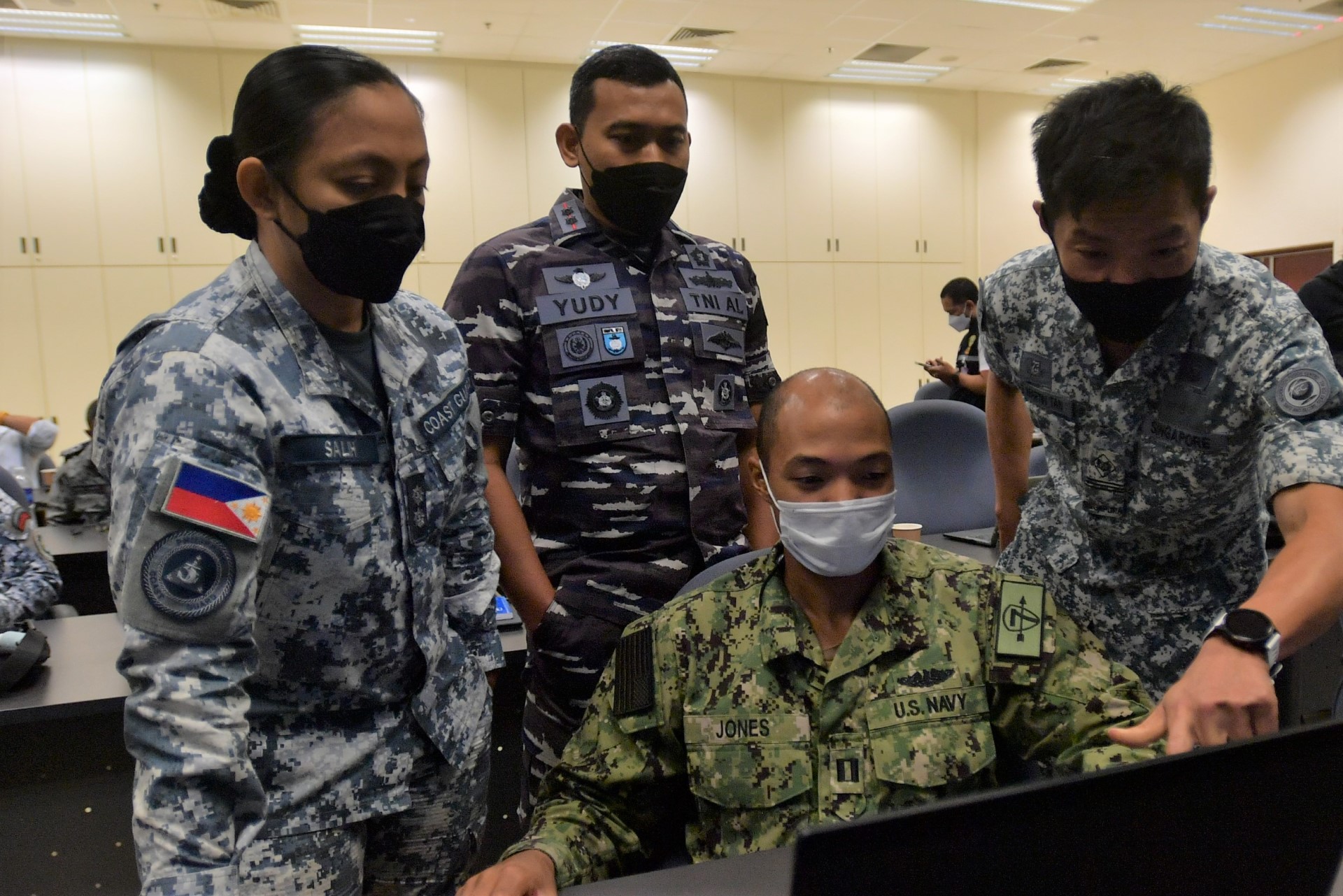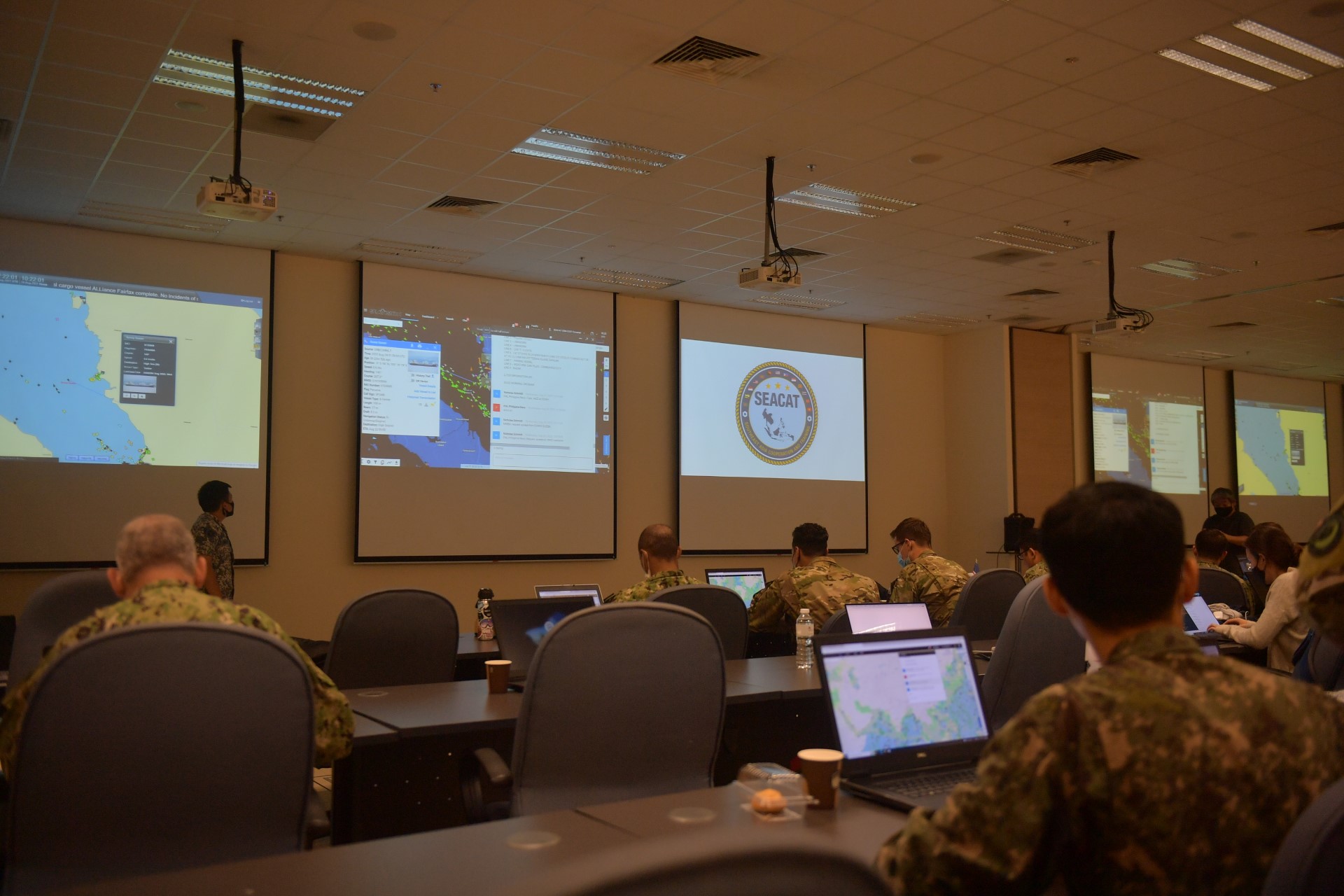The Republic of Singapore Navy (RSN) is participating in the multilateral Southeast Asia Cooperation and Training (SEACAT) exercise conducted annually by the United States Navy (USN). This year's exercise takes place from 16 to 26 August 2022 and sees participants from Australia, Bangladesh, Brunei, Canada, Fiji, France, Germany, Indonesia, Japan, Malaysia, Maldives, New Zealand, Peru, Philippines, Singapore, the Republic of Korea, Sri Lanka, Thailand, United Kingdom and Vietnam coming together to enhance cooperation and information-sharing to strengthen regional responses against maritime terrorism and piracy threats in the Straits of Malacca and Singapore, and the South China Sea.
This year's exercise comprises a three-day maritime security seminar, workshops on Vessel Board Search and Seizure (VBSS) and Unmanned Aerial Systems, and a sea phase. The seminar and workshops provide a platform for international participants and subject matter experts to discuss and share on best practices to deal with maritime security threats in Southeast Asia. During the seminar, the RSN's Information Fusion Centre (IFC) also did a sharing on the regional maritime security situation and provided updates on key developments.
The exercise headquarters for the sea phase is set up at the Changi Command and Control Centre (CC2C) in RSS Singapura-Changi Naval Base. During the exercise, liaison officers from the various countries use the IFC's Real-time Information Sharing (IRIS) to fuse and sense-make information to identify vessels of interest in the Straits of Malacca and Singapore, and the South China Sea. The respective operations centres from the participating navies and coast guards are then cued to deploy aircraft and ships to investigate and carry out relevant operational response to neutralise potential threats. These efforts are operationally useful in enhancing regional cooperation in countering maritime security threats in the region.
First established in 2002, the exercise is in its 21st edition. The RSN's continued participation in SEACAT reflects its strong support for practical cooperation in maritime security and continued engagement efforts with navies and coast guards from the region and across the world.
 Exercise SEACAT participants conducting mission planning during the exercise at the Changi Command and Control Centre (CC2C) in RSS Singapura – Changi Naval Base.
Exercise SEACAT participants conducting mission planning during the exercise at the Changi Command and Control Centre (CC2C) in RSS Singapura – Changi Naval Base.
 Exercise SEACAT participants utilised the Information Fusion Centre (IFC) Real-time Information-sharing System to build common maritime situational awareness so that responses to maritime security threats could be coordinated during the sea phase of the exercise.
Exercise SEACAT participants utilised the Information Fusion Centre (IFC) Real-time Information-sharing System to build common maritime situational awareness so that responses to maritime security threats could be coordinated during the sea phase of the exercise.
 RSN personnel and International Liaison Officers planned out the operational response from the command post setup at the Changi Command and Control Centre (CC2C) in RSS Singapura – Changi Naval Base.
RSN personnel and International Liaison Officers planned out the operational response from the command post setup at the Changi Command and Control Centre (CC2C) in RSS Singapura – Changi Naval Base.



